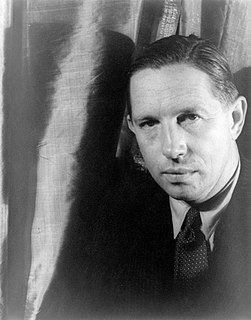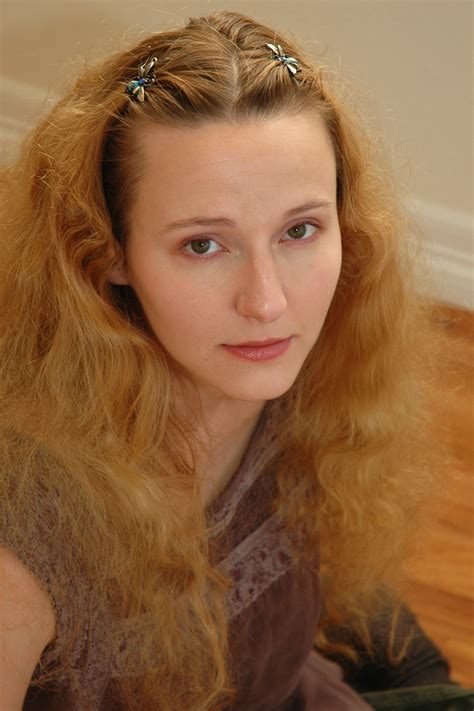A Quote by Louis Bromfield
She had turned her back upon them all and no awful fate had overtaken her; instead, she had taken a firm hold upon life and made of it a fine, even glittering, success; and this is a thing which is not easily forgiven.
Related Quotes
At that moment a very good thing was happening to her. Four good things had happened to her, in fact, since she came to Misselthwaite Manor. She had felt as if she had understood a robin and that he had understood her; she had run in the wind until her blood had grown warm; she had been healthily hungry for the first time in her life; and she had found out what it was to be sorry for someone.
It is an important distinction to note that she looked not only as if she had taken good care of herself, but that she had good reason to have done so. (...) She looked to be in such total possession of her life that only the most confident men could continue to look at her if she looked back at them. Even in bus stations, she was a woman who was stared at only until she looked back.
I found her lying on her stomach, her hind legs stretched out straight, and her front feet folded back under her chest. She had laid her head on his grave. I saw the trail where she had dragged herself through the leaves. The way she lay there, I thought she was alive. I called her name. She made no movement. With the last ounce of strength in her body, she had dragged herself to the grave of Old Dan.
He lifted his gaze to the framed photograph of Tanya and him taken on their wedding day. God, she had been lovely. Her smile had come through her eyes straight from her heart. He had known unequivocally that she loved him. He believed to this day that she had died knowing that he loved her. How could she not know? He had dedicated his life to never letting her doubt it.
In this moment she felt that she had been robbed of an enormous number of valuable things, whether material or intangible: things lost or broken by her own fault, things she had forgotten and left in houses when she moved: books borrowed from her and not returned, journeys she had planned and had not made, words she had waited to hear spoken to her and had not heard, and the words she meant to answer with. . . .
For she was a child, throwing bread to the ducks, between her parents who stood by the lake, holding her life in her arms which, as she neared them, grew larger and larger in her arms, until it became a whole life, a complete life, which she put down by them and said, "This is what I have made of it! This!" And what had she made of it? What, indeed?
Before her marriage she had thought that she had love within her grasp; but since the happiness which she had expected this love to bring her hadn’t come, she supposed she must have been mistaken. And Emma tried to imagine just what was meant, in life, by the words “bliss,” “passion,” and “rapture” - words that had seemed so beautiful to her in books.
He put the box in Kahlan's lap. As she picked it up, she gave him the biggest smile he had ever seen. Before he even knew what he had done, he had leaned over and given Kahlan a quick kiss. Her eyes went wide, and she didn't kiss him back, but the feel of her lips shocked him into realizing what he had done. Oh. Sorry," he said. She laughed. "Forgiven.
You know, and the fact that Nina Simone had to start playing in clubs and sing because her parents had moved north to support her music education. You know, so she had to sing. She had to make a living 'cause she was supporting her family. So poverty and race put her in this place which, you know, created enormous success, but it's not what her psyche was all about.
Occasionally, on screen, Barbara [Stanwyck] had a wary, watchful quality about her that I've noticed in other people who had bad childhoods; they tend to keep an eye on life because they don't think it can be trusted. After her mother was killed by a streetcar, she had been raised in Brooklyn by her sisters, and from things she said, I believe she had been abused as a child. She had lived an entirely different life than mine, that's for sure, which is one reason I found her so fascinating. I think her early life was one reason she had such authenticity as an actress, and as a person.







































